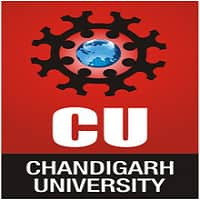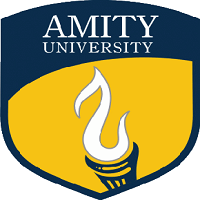Dayananda Sagar University | Health Sciences Admissions 2025
60+ Years of Education Legacy | UGC & AICTE Approved | NAAC A+ Grade | Scholarship Worth 6 Crores
Nursing is one of the most in-demand professions, where individuals dedicate their time and care to support sick and needy patients. It not only offers physical treatment but also provides mental support to patients and their families. Nurses can choose from various specialisations, each with different levels of responsibilities and roles in healthcare management.
To become a nurse, one must have a strong sense of patience, compassion, and commitment. This article covers all the nursing course details after the 12th and is specially designed for those who wish to build a career in nursing.
Also Read: Online Nursing Courses & Certifications
Nursing courses after the 12th are available in many forms, including degree courses, diplomas, and certificate courses. Let us explore the details of nursing courses after the 12th, along with their eligibility, career scope, job roles, and salaries
After completing class 12th, students can choose from various nursing courses based on their interests and career goals. These courses vary in duration and specialisation. Below is a table listing popular nursing programmes after 12th along with their course duration and some of the top colleges in India offering them.
| Courses | Duration | Top Colleges |
|---|---|---|
4 years | AIIMS, Delhi, Acharya Institute of Health Sciences, Bangalore, NIMS University, Jaipur, PGIMS Rohtak, Armed Forces Medical College, Pune | |
Psychiatry and Mental Health Nursing | 2 to 3 years | Acharya Institute of Health Sciences, Bangalore, Patel College of Nursing, Ramnagara, SIMATS Chennai, Jamia Hamdard, New Delhi |
Diploma in Nursing | 3 years | SRM Institute of Technology, Kanchipuram, Venkateswara Nursing College, Vellore, Surabi College of Nursing, Tamil Nadu, Dev Bhoomi School of Paramedical Sciences, Dehradun |
General Nursing and Midwifery (GNM) | 3 years | Sharda University, Noida, Aligarh Muslim University- Aligarh, Christian College, Bangalore, Jahan Institute of Nursing Sciences, Bengaluru |
Auxiliary Nurse Midwifery (ANM) | 2 years | Tilak Maharashtra Vidyapeeth, Pune, Arrdekta Institute of Technology, Gujarat, IIMT University, Meerut |
After completing class 12 with a Science background, students can choose from various nursing courses to begin their careers in healthcare. These nursing courses after class 12th include degree and diploma options, each offering different specialisations, durations, and career paths. Let’s explore these popular nursing programmes in detail.
Bachelor of Science in Nursing (BSc Nursing) after 12th science is a four-year undergraduate degree that combines theory and practical training in areas like nursing care, midwifery, and public health. Students will learn subjects such as anatomy, physiology, and paediatric care. This course prepares graduates for roles in hospitals, clinics, and community health services.
BSc Nursing Duration: This is a four-year undergraduate degree
Eligibility Criteria:
Must have passed class 12th with Physics, Chemistry, and Biology (PCB).
Minimum 45–50 per cent marks in qualifying exams (varies by college).
Some institutions may require entrance exams like NEET, AIIMS BSc Nursing, or state-level tests.
Psychiatry and Mental Health Nursing is a two-year diploma programme that trains students to care for individuals with mental health disorders. This course includes psychological therapy techniques, understanding psychiatric conditions, and providing emotional support. It prepares students to work in hospitals, mental health centres, and rehabilitation facilities.
Psychiatry and Mental Health Nursing Course Duration: This is a two-year diploma programme
Eligibility Criteria:
Must have completed class 12th with science stream (Physics, Chemistry, Biology).
Minimum of 50 per cent marks.
Some institutes may conduct personal interviews or entrance exams.
60+ Years of Education Legacy | UGC & AICTE Approved | NAAC A+ Grade | Scholarship Worth 6 Crores
Diplomas are a good alternative to BSc Nursing courses after 12th science. Diploma in nursing course covers nursing principles, medical tools, surgical care, health economics, and ward management. After completing this course, students can apply for entry-level roles in hospitals, clinics, or administrative departments based on their interests. Also, the diploma-level course fees are lower than BSc Nursing fees.
Diploma in Nursing Duration: This is a three-year diploma programme.
Eligibility Criteria:
Class 12th with a minimum of 50 per cent marks
Science stream with Biology is mandatory
General Nursing and Midwifery (GNM) course is a popular nursing course after 12th science. It trains students to care for patients who are sick or recovering. Though the GNM syllabus may vary by institution, it focuses on clinical and hands-on training in patient care. The programme ends with a six-month internship to give students real-world experience. Also, GNM course fees are usually lower than BSc Nursing fees.
GNM Course Duration: This is a three-and-a-half-year diploma programme.
Eligibility Criteria:
Class 12th in science stream (PCB)
Minimum 50 per cent marks
Auxiliary Nurse Midwifery (ANM) is a diploma in the nursing course after 12th that focuses on basic healthcare education and human health. During the programme, students learn about operation theatre procedures, medical equipment, and how to assist in different healthcare settings. The course aims to train candidates to serve as primary healthcare providers for individuals of all ages in community settings.
ANM Course Duration: This is a two to two-and-a-half-year diploma programme.
Eligibility Criteria:
Completed 12th with PCB (Physics, Chemistry, Biology).
Minimum 50 per cent marks required.
Nursing is a respected and in-demand career option after the 12th, offering opportunities in hospitals, clinics, military services, and community health centres. With a diploma or degree in nursing, students can start working in both public and private sectors, or even pursue jobs abroad in countries like the UK, USA, Canada, and Australia.
Nurses may choose to specialise in areas like paediatrics, psychiatric care, or surgical support. With experience or higher education like an MSc Nursing or healthcare administration, they can also become educators, researchers, or hospital managers.
Here are some top sectors where nursing graduates can work:
Government and Private Hospitals
Military and Defence Nursing
Community and Rural Health Centres
International Healthcare Jobs
Educational and Research Institutions
School and Corporate Healthcare Units
After completing a nursing course, whether it’s a diploma, degree, or certificate, graduates can explore several job opportunities across the healthcare sector. Most roles begin at the entry-level but offer scope for growth with experience and further education. Salaries can vary based on location, specialisation, and experience.
Here are some of the most common nursing job roles and their average annual salaries:
| Job Roles | Description | Average Salary (LPA) |
|---|---|---|
Staff nurse provides routine patient care, check vital signs, give prescribed medicines and act as the first point of contact between doctors and patients. | Rs. 5.5 LPA | |
Head Nurse | The head nurse supervises the nursing team and coordinates patient care activities. They also ensure that hospital policies and care standards are followed. | Rs. 6.5 LPA |
Clinical Nurse Specialist | A clinical nurse specialist delivers advanced care in specialised departments like the ICU or surgery and also helps train junior nurses in critical care procedures. | Rs. 6.5 LPA |
Nursing Instructor | Nursing Instructor Teaches theory and practical skills to nursing students. They often work in nursing colleges or training institutes. | Rs. 5.6 LPA |
Nurse Manager | The nurse manager manages hospital nursing departments, staff schedules, and operations. They ensure quality patient care and handle administrative tasks. | Rs. 6.5 LPA |
Home Care Nurse | Home care nurse provides personalised medical care to patients at home and assists them with daily health routines and medication. | Rs. 5.5 LPA |
Military Nurse | Military nurse serves in defence hospitals or field units offering medical support. They provide emergency care, assist doctors, and support injured personnel. | Rs. 9.3 LPA |
Source: AmbitionBox
Apart from working in the nursing field, individuals can also choose to study further. Gaining more knowledge through higher education gives them a better understanding and control over the subject. Professional nurses can go for a master’s degree and even continue with research by pursuing a PhD in nursing or related fields.
BSc Nursing, Psychiatry and Mental Health Nursing, Diploma in Nursing, GNM, and ANM.
A diploma in nursing courses after 12th is around 2 to 3.5 years long, depending on the specialisation and the institute.
The course fee for courses in nursing courses ranges from Rs. 10,000 to Rs. 1,50,000 depending on the type, duration, and institution.
After the 12th grade, nursing courses are job-oriented. Depending on your specialisation, skillset, and vacancy in the chosen field, you may be able to find work after completing this course.
After completing 10+2 with PCB subjects, you can opt for a BSc Nursing degree. Graduating with this nursing degree will provide you with lots of opportunities in the private and public sectors.
Passing NEET will help you to gain admission to BSc nursing courses. But it is not the only path, as there are other entrance exams as well such as IPU CET.
ANM stands for Auxiliary Nurse and Midwife and it is a diploma-level programme of two years.
BSc Nursing is an undergraduate degree of four years.
The average salary for BSc Nursing graduates ranges between Rs. 15,723 - Rs. 2,16,609, according to Glassdoor.
The full form of GNM is General Nursing and Midwifery. It is a diploma programme that has a duration of three years and six months.
Hello aspirant,
Three specialized courses are available at the R R College of Nursing, Ajmer, which is situated in Ajmer, Rajasthan. Among the courses provided are GNM, B.Sc., and B.Sc. (Post Basic).
The institute offers three courses with one variety of specializations.
To know the fees structure of bsc nursing, you can visit our site through following link:
https://www.careers360.com/colleges/rr-college-of-nursing-ajmer
Thank you
HEY THERE!!!
B.Tech CS is better than B.Sc CS for research and higher studies because:
Offers stronger practical + theoretical foundation
Preferred for M.Tech, MS, PhD
Better placements and recognition
Choose B.Tech CS for a better research and career path.
SPMC Bikaner doesn’t offer B.Sc Nursing.
For B.Sc Nursing in Bikaner, apply through RUHS B.Sc Nursing Entrance Exam.
2025 exam date: May 27, 2025.
Applications start in April 2025.
Dear Candidate ,
With a KCET agriculture rank of 17,232 and a practical exam rank of 8,340 , you have a fair chance of securing a B. Sc ( Hons ) . Forestry seat in Karnataka, particularly at the Colleges of Forestry , Sirsi or Ponnampet . Both colleges had previous year cutoffs around 9,000-11,000 in practical rank , so your rank falls within or close to the closing range . Your chaces improve if you belong to a reserved category . Make sure to participate in all counseling rounds , including mop-up and regularly check the KEA official website for updates .
Orthotists and Prosthetists are professionals who provide aid to patients with disabilities. They fix them to artificial limbs (prosthetics) and help them to regain stability. There are times when people lose their limbs in an accident. In some other occasions, they are born without a limb or orthopaedic impairment. Orthotists and prosthetists play a crucial role in their lives with fixing them to assistive devices and provide mobility.
A pathologist diagnoses diseases by examining body fluids, tissues, and organs. They perform tests, microscopic analysis, and autopsies to identify abnormalities and causes of illness. Working mainly in hospitals and labs, they collaborate with doctors to guide treatment. The field offers growing career opportunities in clinical practice, research, and education due to rising demand for diagnostic services.
A Veterinary Doctor diagnoses, treats, and prevents diseases in animals. They perform surgeries, advise on nutrition, and guide animal care and breeding. To become one in India, students must complete a Bachelor’s in Veterinary Science (B.V.Sc) after studying Physics, Chemistry, and Biology in Class 12. The role combines medical expertise with compassion for animal welfare.
A Speech Therapist (Speech-Language Pathologist) diagnoses and treats speech, language, communication, and swallowing disorders across all ages. They work in hospitals, schools, clinics, and more. Becoming an SLP requires a master’s degree, clinical training, and certification. With rising demand, the career offers rewarding opportunities in therapy, education, and research.
A gynaecologist is a medical specialist in women’s reproductive health, handling issues like menstruation, fertility, pregnancy, and childbirth. They perform exams, surgeries, and offer family planning services. To become one, students must complete MBBS and postgraduate training. Gynaecologists work in hospitals or clinics and are in high demand, with salaries growing significantly with experience.
The audiologist career involves audiology professionals who are responsible to treat hearing loss and proactively preventing the relevant damage. Individuals who opt for a career as an audiologist use various testing strategies with the aim to determine if someone has a normal sensitivity to sounds or not. After the identification of hearing loss, a hearing doctor is required to determine which sections of the hearing are affected, to what extent they are affected, and where the wound causing the hearing loss is found. As soon as the hearing loss is identified, the patients are provided with recommendations for interventions and rehabilitation such as hearing aids, cochlear implants, and appropriate medical referrals. While audiology is a branch of science that studies and researches hearing, balance, and related disorders.
An oncologist is a medical doctor who diagnoses and treats cancer using chemotherapy, radiation, surgery, and other therapies. They work with a team to create treatment plans tailored to each patient. Specialisations include medical, surgical, radiation, pediatric, gynecologic, and hematologic oncology. Becoming an oncologist in India requires an MBBS and postgraduate studies in oncology.
A biochemist studies the chemical processes within living organisms, combining chemistry and biology. They conduct experiments, analyse data, and develop products like drugs and vaccines. Biochemists work in labs, healthcare, research, and education. A degree in biochemistry or related fields is essential, with advanced roles often requiring higher degrees. They also ensure quality control and may teach or mentor others.
A Narcotics Officer investigates drug use, tracks traffickers, and conducts undercover operations to arrest dealers. They collaborate with government agencies at borders and work with NGOs to raise awareness about drug abuse. This vital role helps reduce illegal activities, making communities safer and limiting the spread of drugs. If you’re committed to law enforcement, this career could be your path.
A Research Associate supports scientists by designing and conducting experiments, collecting and analyzing data, and preparing reports. They ensure research follows ethical guidelines and collaborate with teams. Typically working in labs or research institutions, they start with a salary around Rs. 35,000 monthly, growing with experience. Career growth can lead to senior research or scientist roles.
A Biotechnologist is a professional who possesses strong knowledge and techniques that are utilised in creating and developing innovative products that improve the quality of human life standards. A biochemist uses biological organisms to create and improve goods and procedures for agriculture, medicine, and sustainability. He or she researches the genetic, chemical, and physical characteristics of cells, tissues, and organisms to determine how they can be used industrially.
A career as Research and Development (R&D) Personnel involves innovating and improving products or technologies through scientific work, experiments, and analysis. They design models, manage projects, and support technical and administrative tasks. Typically requiring a relevant engineering degree, this role demands strong analytical, problem-solving, and communication skills, ideal for those passionate about innovation and scientific discovery.
A Drug Inspector ensures the quality and safety of medicines by inspecting pharmaceuticals throughout the production, distribution, and sale processes. They ensure drugs meet health standards, preventing unsafe or substandard medicines from reaching consumers. Drug Inspectors are responsible for monitoring compliance with regulations, conducting inspections, and ensuring that products meet required safety and efficacy standards.

NAAC A+ Grade | Ranked No.1 Private University in India (QS World University Rankings 2025)

Ranked #1 Among all Private Indian Universities in QS Asia Rankings 2025 | Scholarships worth 210 CR

Ranked amongst top 3% universities globally (QS Rankings)

NAAC A+ Accredited| Ranked #24 in University Category by NIRF | Applications open for multiple UG & PG Programs
Ranked as India’s #1 Not for profit pvt. University by India Today
Admissions Open for multiple allied and health sciences programs across 5 campuses | Ranked #7 in India by NIRF, NAAC A++ Accredited